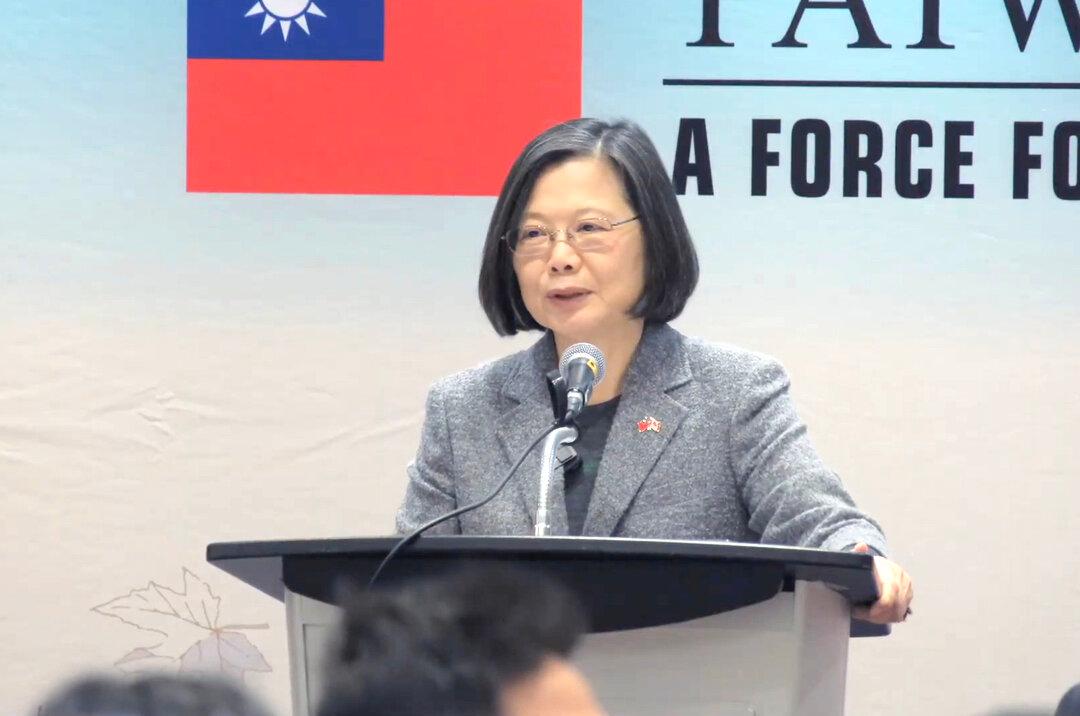MARKHAM, Ont.—Former Taiwanese President Tsai Ing-wen praised the strengthening of ties between Taiwan and Canada during her first visit to Toronto since leaving office.
“In recent years, Taiwan has garnered increasing attention from the international community, especially in Canada,” Tsai said in Mandarin to an audience of Taiwanese diaspora and business leaders at the Hilton Hotel in Markham on Nov. 21. “I can truly sense the significant improvement in our relationship with Canada.”





